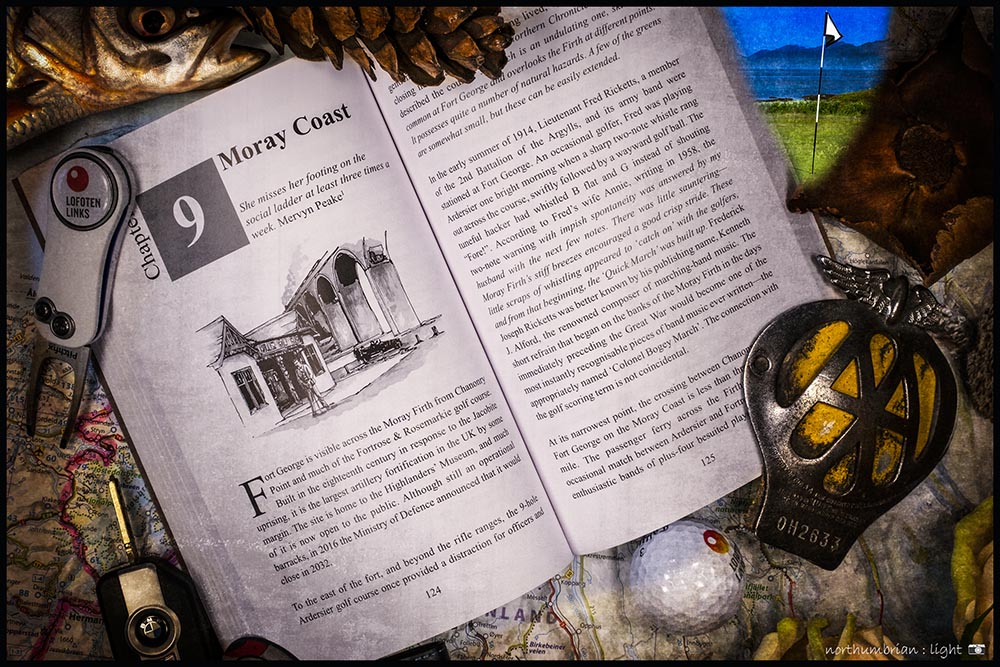Chapter 9: In the early summer of 1914, Lieutenant Fred Ricketts, a member of the 2nd Battalion of the Argylls, and its army band were stationed at Fort George. An occasional golfer, Fred was playing Ardersier one bright morning when a sharp two-note whistle rang out across the course, swiftly followed by a wayward golf ball. The tuneful hacker had whistled B flat and G instead of shouting “Fore!”. According to Fred’s wife Annie, writing in 1958, the two-note warning with impish spontaneity was answered by my husband with the next few notes. There was little sauntering—Moray Firth’s stiff breezes encouraged a good crisp stride. These little scraps of whistling appeared to ‘catch on’ with the golfers, and from that beginning, the ‘Quick March’ was built up. Frederick Joseph Ricketts was better known by his publishing name, Kenneth J. Alford, the renowned composer of marching-band music. The short refrain that began on the banks of the Moray Firth in the days immediately preceding the Great War would become one of the most instantly recognisable pieces of band music ever written—the appropriately named ‘Colonel Bogey March’. The connection with the golf scoring term is not coincidental.
Golf in the Wild – Going Home – Moray Coast
Posted in Courses, Golf, Scotland, The Sequel and tagged Ardersier, Chapter 9, Colonel Bogey, Covesea, Covesea Golf, Cullen, Cullen Golf, Fred Ricketts, Kenneth J Alford, Lossiemouth, Moray.
